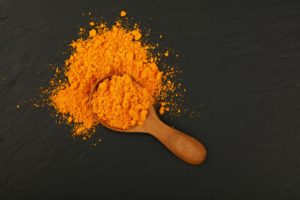
Most look for quick relief in a pill bottle, but let’s be honest—you don’t really want to be popping over-the-counter or prescription pain pills all the time. And of course, you’ve heard that movement can help—and in some cases work extremely well—especially if your joint pain is the result of an autoimmune condition.
Herbs and spices, however, might be effective in offering quick relief from sore joints. Whether applied topically or taken orally, the following might help take care of pain so you can take back your life.
- Boswellia: Also called frankincense, this ancient herb may have substantial anti-inflammatory effects. It is thought to block substances that attack healthy joints, helping to limit pain and swelling. It can be applied both as a topical rub or taken orally.
- Ginger: Ginger may have anti-inflammatory compounds that can be useful in treating joint pain. Research has indicated its effects on various types of joint pain, finding it can reduce swelling and bring healing properties to inflamed areas.
- Thunder God Vine: Thunder God Vine has a long history in Traditional Chinese Medicine. The herb’s Skinned-root extracts are noted to suppress overactive immune systems, which means it might help combat joint pain. It is best applied topically, but use caution: if extracts are taken from other areas of the vine, they can be poisonous. It is likely also unsafe for long-term use.
- Turmeric: The spice known for giving curry its flavor and color may also promote anti-inflammatory effects in the body. It may work best when taken orally, but topical creams may have some effect, as well. Always remember to do a small skin patch test before applying any herbal rub.
The winter can leave you in physical pain, but the cold, damp, windy days don’t necessarily have to leave you stifled. Compliment your current joint pain defensive strategy with these potentially fast-acting herbs.